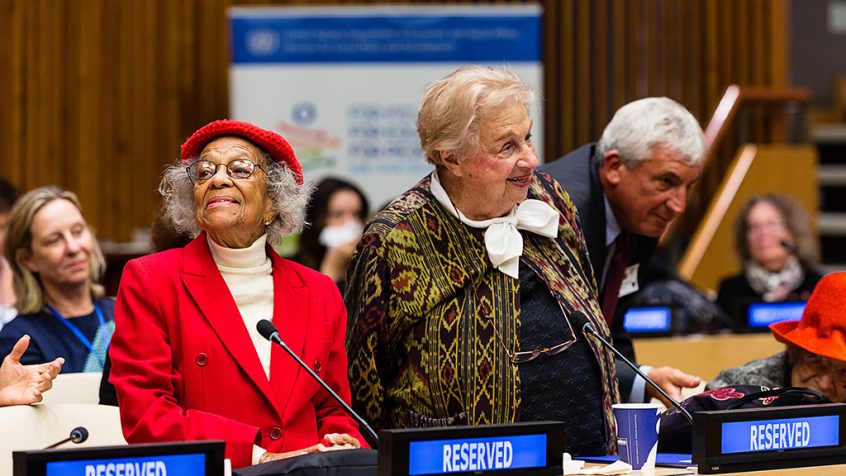
Life does not end after 60 and neither should the data
Our world is rapidly ageing. By 2050, our planet will be home to twice as many people over 60, than there are today. At the same time, the population aged 80 or more will triple in size, according to UN DESA’s 2017 Revision of the World Population Prospects.
These trends will have a profound impact on the implementation of the 2030 Agenda for Sustainable Development. The world’s integrated efforts to eradicate poverty, ensure quality healthcare and reduce gender inequalities will need to be planned for a very different population than the one we know today.
While the international community has acknowledged these global demographic shifts, little has been done to recognize that older women and men are as diverse as any other age group. Today’s common practice of lumping together everyone over the age of 60 assumes uniformity across age and gender. It is as if gender gaps suddenly disappeared on our 60th birthdays and employment opportunities or healthcare challenges of a 61-year old were the same as those of a nonagenarian.
To better understand the challenges and opportunities faced by older persons and to assess their economic, social, health and cultural conditions, data is crucial. We need to develop systematic data analysis, disaggregation and collection approaches and methodologies to fill these data and evidence gaps.
Improving our understanding of the gender dimensions of the lives of older people will be critical, since social, economic, health and cultural factors affect older women and men in different ways.
Currently much of the available survey data excludes various age groups and where such data exists, lack of standardization of age disaggregation means that data are not comparable or adequate for monitoring the SDGs.
This makes it difficult to track the impact of development programmes on the full lifecycle. Age disaggregation of data is critical if we are going to develop programmes that will help people to break free from intergenerational poverty. Without better data there is a significant risk of compounding inequalities and locking the most vulnerable and marginalized out of development.
An informal support group of institutions led by Statistics UK and supported by the UK’s Department for International Development (DFID) and several UN agencies, including UN DESA’s Division for Social Policy and Development, is taking on these challenges in a systematic way, by supporting the establishment of a City Group on Ageing and Age-disaggregated Data.
City groups are informal, voluntary groups of experts, primarily from national statistical agencies, formally established through the United Nations Statistical Commission (UNSC). The Washington City Group on Disability Statistics is one particularly successful example of this approach to international cooperation on data.
Last week, a technical seminar in Winchester, UK, organized by the UK Office of National Statistics and the informal support group, brought together national statistical officials, representatives of international organizations, civil society and academia. The objective was to lay the important groundwork for the proposed city group on ageing, including its objectives, activities, methods of work, terms of reference and timelines.
There was a strong sense of purpose and urgency to this meeting, as the Titchfield City Group on Ageing and Age-disaggregated Data is supposed to be presented for approval by the UN Statistical Commission already at its next session in March 2018.

Follow Us